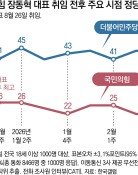Not just an individual corruption case
Not just an individual corruption case
Posted May. 28, 2011 01:09,
Eun Jin-soo, inspection commissioner at the Board of Audit and Inspection, resigned Friday after an investigation began into his alleged bribe taking from Busan Savings Bank Group. The corruption scandal surrounding the savings bank is not just individual graft but a typical case of influence peddling stemming from President Lee Myung-baks appointment of his confidant to an important position to repay a favor. Eun was a leading member of Ahnkook Forum, a pro-Lee group that worked for his 2007 presidential campaign and led a task force to resolve the stock price fraud scandal surrounding the securities company BBK. After Lee won the election, Eun served as a legal and administrative adviser at the presidential transition committee and was appointed inspection commissioner of the government watchdog in 2009. This stoked strong criticism from opposition parties.
In an unprecedented move, President Lee visited the office of the senior presidential secretary for civil affairs and said, If figures and things related to us are involved, a more thorough and stringent investigation should be conducted to clear all of the people`s suspicions. President Lees order for a strict probe, however, cannot absolve him of his mistake of appointing his confidant to an important post out of gratitude. He should have refrained from appointing Eun as an inspection commissioner, whose main duty is to monitor corruption in the public sector. When President Lee nominated Chung Dong-ki, former senior presidential secretary for civil affairs, to head the Board of Audit and Inspection, he said Chung is the person who will maintain the autonomy and neutrality of the audit agency. When ruling party leaders requested Chung to voluntarily cancel his nomination in the face of public criticism, President Lee reportedly grew angry at the ruling party for a time.
Article 15 of the Act on the Board of Audit and Inspection bars inspection commissioners from auditing persons with whom they have relations. Eun participated in the agencys audit committee deliberations on savings banks early last year though he was a legal adviser to Busan Savings Bank for two years from 2005. Eun should have admitted his ties with the bank and refrained from joining the deliberations. He must have known of Article 15 because he had been a judge, prosecutor and lawyer. The audit agency said the meaning of the phrase with whom they have relations is not clear but the problem is the lack of an internal verification system.
Board of Audit and Inspection Chairman Yang Kun said Friday, Securing independence from external forces is important in achieving autonomy of the agency and gaining public trust, but basically the firm attitude and will of staff and their efforts are more important. His comment is correct but the independence of the agency cannot be solely achieved through the will of its head. Only when those in power refrain from peddling their influence can the agency gain independence.
When the term of a president neared its end, major corruption scandals involving his close aides occurred in the past, accelerating the lame-duck phenomenon and increasing confusion in state affairs. The Lee administration has said no corruption will be committed by the president`s confidants but the scandal surrounding Eun erupted. With President Lees term nearing its end, those close to him should be more careful for his administration not to make the same mistakes that previous governments did.




![“20대엔 28개, 80대엔 15개… 노년기 치아상실 피하려면”[베스트 닥터의 베스트 건강법]](https://dimg.donga.com/c/138/175/90/1/wps/NEWS/IMAGE/2026/02/27/133437590.4.jpg)

![‘노인 냄새’ 씻으면 없어질까?…“목욕보다 식단이 더 중요”[노화설계]](https://dimg.donga.com/c/138/175/90/1/wps/NEWS/IMAGE/2026/02/27/133434557.3.jpg)
